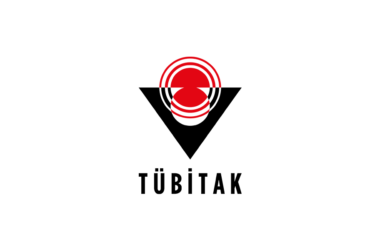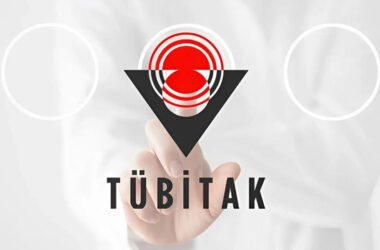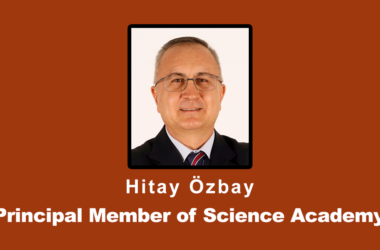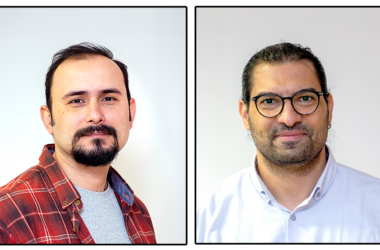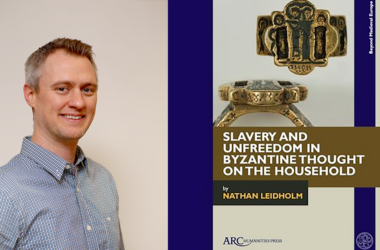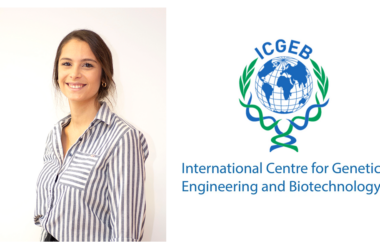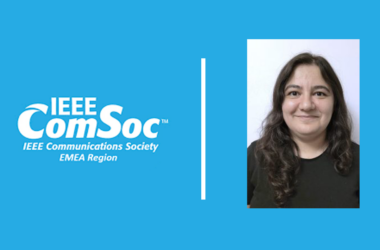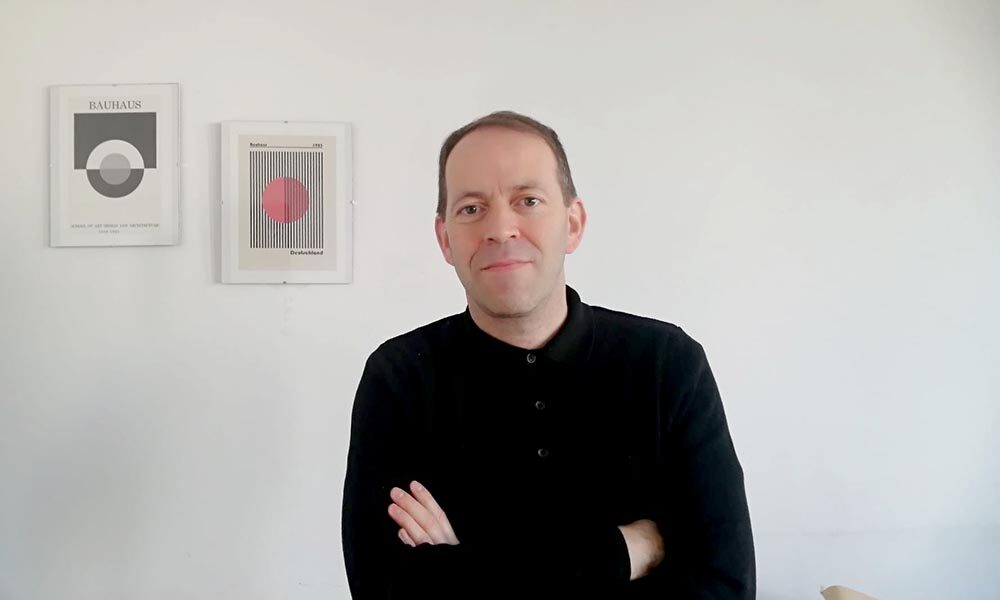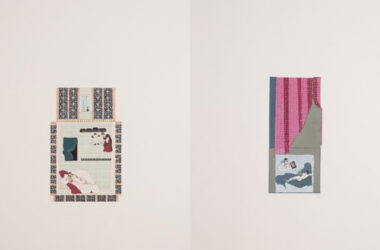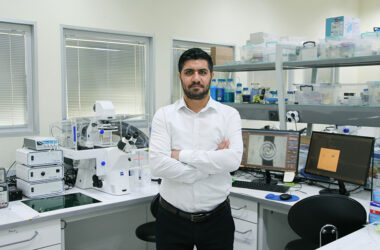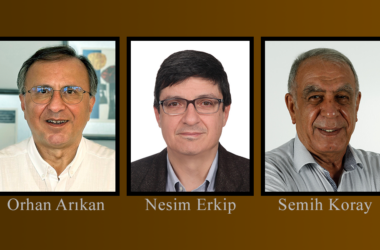BY PELİN SU UZUNCAGİL (AMER IV)
Pierre Yves Vandermeersch is an instructor in the Second Foreign Language Program. He is currently teaching LNG 131 (German I) and LNG 132 (German II). After obtaining his MA in German Literature and Civilization at the University of Lille in 2000, he worked as a German and French teacher in different institutions in France and Germany before coming to Bilkent.
Why did you choose an academic career?
The career chose me more than I chose the career. It is nice to transmit knowledge.
What do you like the most about being at Bilkent?
Bilkent is a nice area for several reasons. It has its own environment that is different from its surroundings. It is like a city within a city. I sometimes feel like I am not living in Ankara. There are some rules that you do not see outside, which I appreciate. People are very friendly. The area is green and well organized. One of the best parts is that I can speak English because my Turkish is not very good.
What projects are you working on currently?
Not for Bilkent but for myself, I write. I generally write novels, and there is a novel that I am working on currently.
What’s the best thing that you did?
Settling down in Berlin was a very good choice. After this, meeting my wife.
What excites you about your work? And what is the coolest thing about your work?
There is an element of freedom in being an instructor, for example in organizing lessons, assignments and class structure. There is a certain amount of autonomy in your work.
What has been the most exciting moment of your career so far? Could you share a turning point or defining moment in your career?
I came to Bilkent as a part-time instructor and later become a full-time teacher. I think it was an important step for my career. Apart from that, Berlin is a very special place for me since I have lived there for 20 years. I’ve learned and experienced a lot of things there.
What’s one piece of information from your field that you think everyone should know? What’s the most common misconception about your work?
I can be generous as a teacher in a class, but I am also demanding. It may sometimes seem to be easy to take advantage of this generosity, but I am not to be fooled. I want to see a commitment from students, and if I cannot see that, I do not judge them. But it is then up to them to reach for whatever reason they took the course. The lesson is an exchange. It is not a linear process where the teacher gives information. In language classes, students should give me something back in order to learn.
Where do you do your best thinking?
I mostly work in my office or at home. I need a computer and my books.
What distracts you?
Noise. I am very sensitive to it.
What are you most curious about?
Details about people and their lives, mostly for my novels. I am curious about the things I do not know and have never experienced.
What do you like to do when you are not working?
Writing, photography and reading. I have a family, and I also spend time with them.
Which books have influenced you the most, and why?
I find Thomas Bernhard’s work impressive. His prose blows my mind. Generally, Austrian literature often shows me something different.
If you weren’t an academic, what career would you choose?
As a utopic ideal, I would like to live by being a writer. Apart from that, I find journalism and reporting exciting. But who knows if I wouldn’t start a career as a sculptor if I had to start all over?
What is the secret of leading a happy life?
Happiness is short term. The secret is not just following your dreams, because they might not work in the end. Fulfilling the dreams is important. Having aims but not making them so high. You have to reach some of your dreams. The key is to want new things. Expectancy is important, but there is a thin balance in this.
If you could go back to your undergraduate/graduate student years, what advice would you give to your younger-self?
Waste less time with peripheric distractions. Don’t have less fun but focus on what you want to become. Focus on what you can do to reach that aim — I possibly had too much free time. I think that here at Bilkent, many students seem to know what they want, and that is good.
If you had unlimited funds, what would you like to do with it?
Create a publishing house for poetry and novels. It would be for fiction, not for research. I would travel and probably, at some point, I would help other people around me. Big money gives you time, so the real question should be, “What am I going to do with my time?” The things that you can do with time are limitless: reading, creating space for things you might never have thought you would be interested in, going to the moon…

